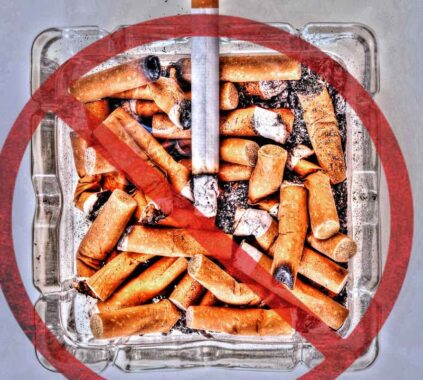Even though smoking is a deeply rooted habit practiced for generations, it continues to cause avoidable diseases and early deaths globally. While it is critical to emphasize that stopping smoking is the most effective strategy to enhance overall health, those who continue to smoke can use harm reduction strategies. In this post, we give vital smoking suggestions backed up by professional advice and guidelines to help reduce the negative health impacts of smoking.
Select a Healthier Option
Individuals who cannot quit smoking may find that switching to a less dangerous alternative is a step in the right direction. E-cigarettes and vaping devices have grown in popularity as possible harm-reduction techniques. However, their long-term health implications are still being researched. Experts advise that if you pick this option, you should avoid black market items, stick to reputed brands, and seek advice from a healthcare provider.
Avoid Duplicate Use
Dual use, or smoking traditional cigarettes while using e-cigarettes, can result in greater nicotine intake and health hazards. It is critical to either shift to e-cigarettes or continue smoking traditional cigarettes, but not both. Diminish nicotine levels in e-cigarettes gradually to diminish reliance and eventually achieve quit.
Maintain Hydration
Smoking dehydrates the body, which can lead to various health problems. To prevent this impact, drink plenty of water throughout the day. Proper Hydration promotes organ function, aids in toxin removal, and promotes overall health.
Select Natural Cigarettes
Choose classic cigarettes that include fewer additives and chemicals. Organic and natural tobacco cigarettes can potentially lessen exposure to some of the hazardous components found in conventional cigarettes. Remember that all tobacco products harm health, and quitting is the best alternative.
Reduce your smoking frequency.
Smoking less frequently can be advantageous to one’s health. Instead of smoking impulsively, attempt to space out the intervals between cigarettes and build a smoking regimen. It can assist in reducing the detrimental effects of smoking on your body.
Establish a Designated Smoking Area
If smoking indoors is inevitable, designate a smoking area. Maintain a well-ventilated environment and keep this area away from youngsters, pregnant women, and non-smoking families or friends. This practice helps to decrease the exposure of others to secondhand smoke.
Maintain a Healthy Diet
A balanced diet can help to mitigate some of the harm caused by smoking. Consume a diet high in fruits, vegetables, whole grains, and lean proteins to acquire the vital nutrients and antioxidants to fight smoking-related oxidative damage.

Exercise regularly
Physical activity offers several health advantages and can help reduce smoking-related hazards. Exercise regularly can enhance cardiovascular health, lung function, and overall well-being. Before beginning any fitness program, consult a healthcare expert, especially if you have pre-existing health concerns.
Seek Professional Help
Quitting smoking is a complex process; understandably, not everyone can do it immediately. Seek professional help from healthcare practitioners, counselors, or support groups if you are seeking to quit or minimize smoking. Numerous tools are available to help you on your path to better health.
Maintain Consistent Health Monitoring
Finally, you must proactively monitor your health if you continue to smoke. Schedule regular check-ups with your doctor to assess the effects of smoking on your body. It enables the early detection of any smoking-related health disorders and the facilitation of timely interventions.
Conclusion
Smoking is still a significant public health issue, generating a slew of severe illnesses and untimely deaths. Smoking cessation is, without a doubt, the most effective approach to enhancing overall health and eliminating associated risks. Individuals who continue to smoke, on the other hand, can benefit from harm reduction techniques. Remember that these techniques are not a replacement for quitting but rather try to reduce the harm caused by smoking. Always seek personalized guidance and assistance from healthcare professionals on your path to improved health.
Last modified: August 25, 2023






